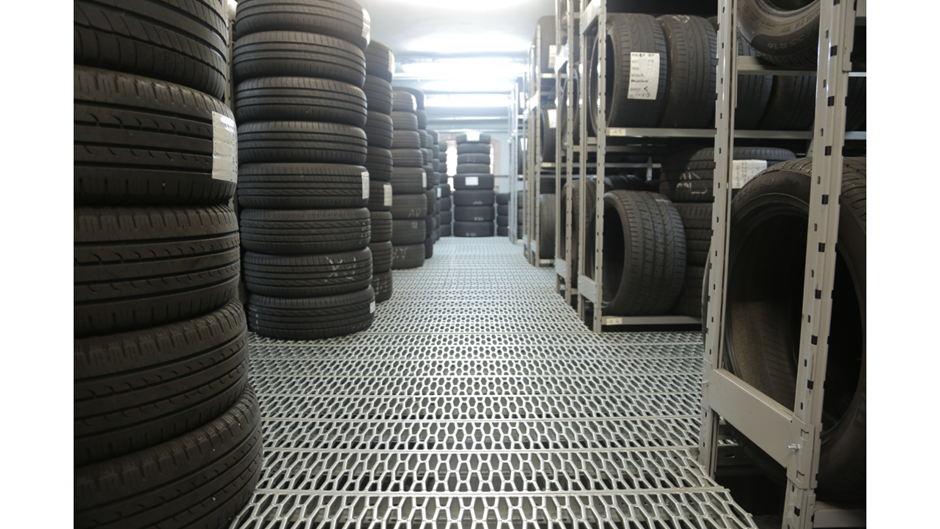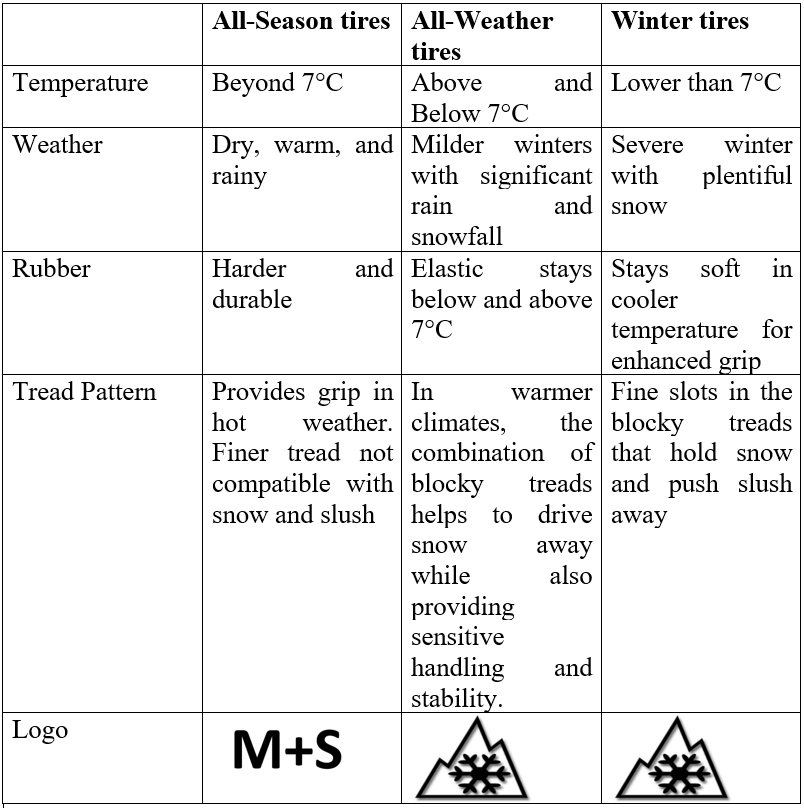What Is The Difference Between All-Season Tires, All-Weather Tires, And Winter Tires?
September 22, 2022
Tires

Understanding and dealing with the elements is an essential part of driving in Canada is learning to navigate at the wheel properly.
When snowflakes begin to fall, and the temperature drops, staying safe on snowy highways begs a crucial question: what are the kinds of tires you need? What makes winter tires (or snow tires) different from all-season tires? What about all types of weather? How does that compare to all-season tires?
Let us address some of these concerns because tires are a huge investment, and you want to make sure you are getting the right ones for your vehicle.
Below is a quick rundown to help you navigate your way through tire-related questions:

What Are All-Weather Tires?
All-weather tires, also referred to as all-season tires, combine the advantages of winter and summer tires. On the other hand, sacrifice some qualities for more extreme situations like substantial rainfall or significant highway icing to keep their well-roundedness. For instance, all-season tires can be noisier and less responsive compared to summer tires since they contain deeper treads. On the other hand, all-season tires do not have as profound treads as winter tires, reducing stopping force and traction on slippery roads.
For drivers who reside in milder climates, all-season tires have numerous advantages. Drivers who use all-season tires, for example, might benefit from the convenience and cost benefits of not needing to change their tires every two years. Furthermore, all-season tires provide a quiet and sufficient amount of traction for regular driving. While all-season tires are ideal for many drivers, those who live in areas with exceptionally harsh winters or particularly long rainy seasons may consider more specialized options.
Why Use All-Weather Tires?
Unlike three-season tires, all-season tires feature the alpine snowflake recognized winter tire symbol, indicating that they have met traction standards for dependable winter performance in Canada. The all-weather tires are a secure purchase throughout the year as an option if you enjoy driving on one set of tires throughout the year due to your driving behaviour and want to avoid the inconvenience and expense of purchasing and keeping a second set.
What Are All-Season Tires?
When the terms all-weather and all-seasons are used interchangeably, it might not be very clear. If you are talking about all four seasons, it’s only natural to include all forms of weather, right?
Not quite. All-season tires function well in the spring, fall, and summer. Several tire manufacturers have begun designating all-season tires as three-season tires. Unfortunately, this tire is not designed for sub-zero temperatures and harsh winter conditions.
When the temperature drops below 7˚C, these tires start to lose traction. The all-season tires have treads that are typically straight and smooth, resisting water when riding on a wet highway and gripping the road better during hot weather.
Winter Tires
Winter tires are intended to handle the demands of coarse winter weather. Their softer rubber, unique design, and traction facilitate the biting edges. If you live in any areas that are affected with severe cold, snow, and ice, winter tires are a must.
Why Do You Require Winter Tires?
Winter tires have a deep, chunky tread design that bites into ice and snow before pushing it away for better grip. Winter tires are created with a rubber composition engineered to be soft and elastic to offer you the required braking and cornering mechanism on hard-packed snow and ice, even at 30 C.
If you frequently drive on bumpy, rainy, or black ice, you may require studded winter tires. Metal studs provide excellent traction on ice and frigid water.
Back

